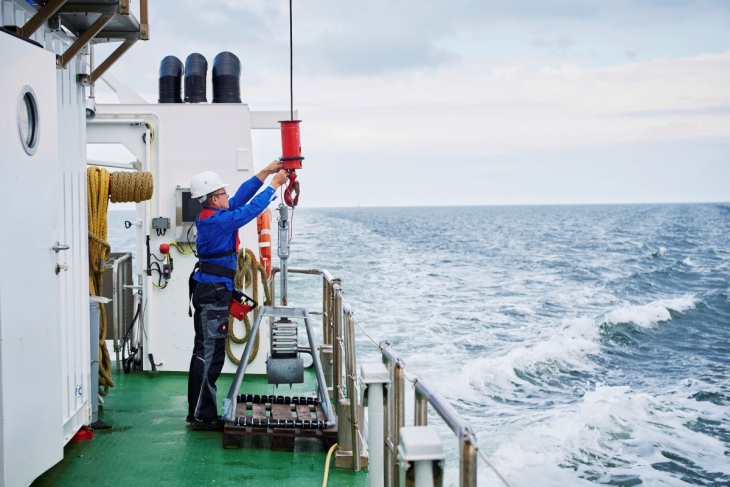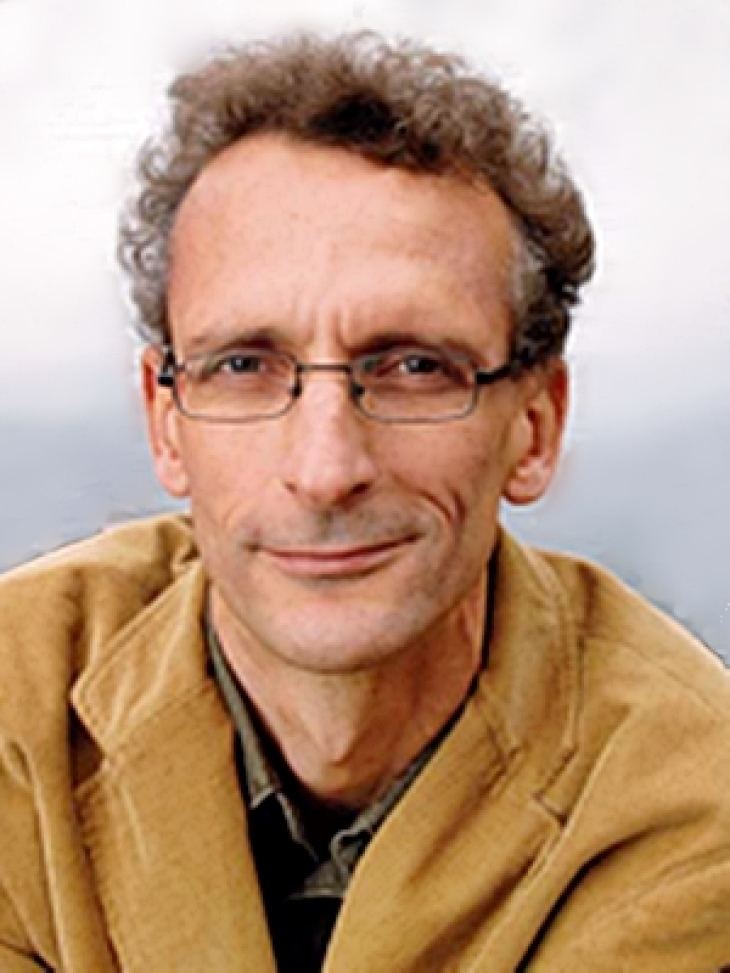Franco-German climate research initiative
Dr Helmuth Thomas, coastal research scientist at the Helmholtz-Zentrum Geesthacht (HZG), will receive funding in the amount of 1.5 million euros over the next four years. Under his supervision, the newly created HZG working group “Alkalinity” will study the effects of climate change on the acid-binding capacity and carbon cycle of the ocean. The project will be financed within the context of the Franco-German climate research initiative established by French president Emmanuel Macron and German chancellor Angela Merkel.

for their expeditions on the North Sea, the scientists use research vessels. Here is a sediment sample taken on board the research vessel LUDWIG PRANDTL. [Photo: HZG/Christian Schmid]
Increasing anthropogenic carbon dioxide emissions not only change the global climate and promote global warming, but also have a diverse impact on life in the oceans: Carbon dioxide is increasingly dissolved in seawater, where it forms carbonic acid, releasing hydrogen ions that acidify the oceans.
This pH reduction influences almost all biochemical and biological processes in the ocean. Very sensitive are calciferous organisms such as mussels, because the formation of their shells becomes more difficult at a lower pH value. On the other hand, during photosynthesis, marine algae extract a large part of the carbon dioxide from the atmosphere and produce as much oxygen as all plants on land combined.
Dr. Helmuth Thomas: "Our project team considers the complex biogeochemical roles of coasts and oceans as adjusting screws for atmospheric carbon dioxide. We are also investigating the extent to which human activities and climate change influence the acid-binding capacity, the so-called alkalinity, of the oceans." Among other things, the scientists are evaluating the input of agricultural fertilisers that enter the oceans via rivers and investigating degradation processes in the sediments of coastal seas.
Alongside calculations using models and simulations on computers, trips with research vessels to take samples of water and the seafloor are an important component of the study. The project will be carried out in collaboration with the universities of Oldenburg, Hamburg, and Exeter (UK) as well as the Alfred Wegener Institute for Polar and Marine Research. An initial expedition that will including taking water and sediment samples will take place at the end of May.
The climate research initiative established by French president Emmanuel Macron and German chancellor Angela Merkel. Together, both heads of government initiated the Franco-German programme “Make Our Planet Great Again” following the Paris Climate Agreement. The initiative, which began in 2018, will receive funding totalling 15 million euros from Germany’s Federal Ministry of Education and Research (BMBF) via the German Academic Exchange Service (DAAD). The 13 selected project supervisors will receive funding of up to 1.5 million euros for a maximum of four years in the period between 2018 and 2022.
More information at the highlight topic : How Much CO2 Does the Ocean Absorb?
About Dr Thomas:

Helmuth Thomas [photo: privat]
Dr Helmuth Thomas was Professor of Oceanography at Dalhousie University, Halifax, Canada from September 2004 until the end of 2018. After studying to be an oceanographer, he completed his dissertation in 1997 at the University of Rostock’s Institute for Baltic Sea Research. At HZG he has been the Senior Scientist for the “Alkalinity” working group since the project launched in April 2019.
